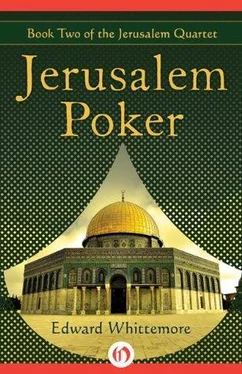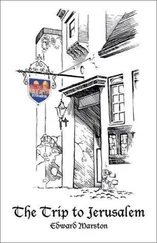Kikuchi snorted, he laughed.
Yes. Despite the ultimate mystery of the universe there's still one small truth we can live by. Choice.
Never merely to take what we are given or inherit, but to choose. It may not seem like much but it's the difference between meaning and memories that disappear in the sand, and something that doesn't. Choice is the arrow. For then, at least, we play a part in making ourselves.
The next morning Munk said he was going away for a few days to be with himself. In answer Kikuchi merely nodded, his face expressionless.
The nightly koto concert was already underway the evening Munk arrived back at St Catherine's. Quietly he walked down the corridor to Kikuchi's cell, with a chair and large case, and sat down in the doorway.
The Greek monks looked at him in surprise but Kikuchi seemed not to take any notice.
The first notes from Munk's cello blended uneasily with the koto, but after a few minutes the two men found their way together and the music from their instruments mixed richly in accord.
Kikuchi smiled happily up at him.
A wise decision, Munk, an arrow in the hillside. There is never any better cause than a homeland for people who lack it. And tonight, I think, we are definitely hearing the strangest music ever played at St Catherine's.
After he had begun his Zionist activities in Jerusalem, Munk returned to St Catherine's to visit Rabbi Lotmann. He could see the Japanese wasn't well and Lotmann finally admitted he was suffering from some severe unknown ailment that caused him to pass excessive water. Medical treatment in Palestine was inadequate and his condition had worsened in recent weeks. Munk urged his teacher to return to Japan to receive proper care. Reluctantly Lotmann agreed it was the best course.
On the last day of May the two men stood on a pier in Haifa. There were tears in Munk's eyes but Lotmann's face was impassive.
I'll be back soon, he whispered.
Of course.
No later than the beginning of the year.
Good.
Tiny Rabbi Lotmann reached into the cart that held his luggage and removed the quiver made of red lacquer and the familiar long thin canvas case.
I've never been without these, said Kikuchi. I'm not sure exactly how old they are, they've been in my family a very long time. But now that my true home is here, I'd like them to stay here. You'll keep them until I return?
Certainly.
Lotmann smiled and took a tiny gold pocket watch out of his vest. He placed it in Munk's hand.
I found this some years ago in an antique shop in Basle. What appealed to me was the extraordinary miniaturization. Can you imagine how small the parts must be to fit inside this case? But look, they're even smaller than you think. There's more going on inside this watch than anyone could ever suspect. Like the universe?
Kikuchi laughed and pressed the button that opened the lid. Munk found himself staring at a blank enamel face. Lotmann pressed the button again and the blank face clicked back to reveal another watch, the face normal in appearance but with the minute hand moving at the speed of a second hand, the second hand a blur. Kikuchi pressed the button once more to reveal a third face, also normal in appearance but with both hands seemingly stationary.
They're moving, said Lotmann, but very slowly. Depending on the temperature and tides and your mood, it takes the second hand two or three hours to make a full traversal.
He snorted and laughed.
You'll also keep this for me, Munk? I've always been fond of it and it would make me happy to know it's here waiting for me. For my return.
The ship's whistle blew. Kikuchi went on board and stood by the railing. As the ropes fell and the ship drew away from the pier, Munk thrust the samurai bow in the air in salute. For a long time he stood there watching the ship become smaller, the tiny gold watch clicking all but inaudibly next to his ear, rendering time slow and fast and nonexistent.
An antique shop in Basle.
One of the masterpieces of miniature clockwork constructed long ago by the father of Johann Luigi Szondi?
That summer Lotmann wrote that he had been diagnosed as a diabetic and confined to his home in Kamakura. There he lived for the next quarter of a century, translating the Talmud into Japanese and eagerly awaiting Munk's monthly reports on Zionist progress in Palestine.
But the gentle Kikuchi twins seemed destined for violent ends. In 1938 Munk learned that General Kikuchi had been grotesquely murdered on the night his army occupied Nanking. And then late in 1945
the general's widow wrote that Rabbi Lotmann had died in an American fire-bomb raid toward the end of the war, a mysterious passing that consumed him and all his translations in a sudden ball of fire while leaving his house and the garden where he was working untouched.
To Munk, Lotmann's death was inevitably reminiscent of the chariot fire that had carried the rabbi's favorite prophet, Elijah, to heaven in a whirlwind.
The wind was whistling through the alleys of the Old City early one March morning in 1925 when the Patriarch of the Syrian Greek Church in Aleppo rose from the poker table. The other three visitors to the game, a wealthy Sumatran slaver and two Belgian embezzlers of food relief funds from Flanders, had dropped out shortly before dawn. The session had begun at noon the previous day and everyone was exhausted. Both Cairo and Munk were slumped in their chairs with their eyes half closed.
Most curious, murmured the Patriarch, a large man with a massive gray beard and watery eyes. Joe had risen respectfully with the Patriarch and now stood with his head cocked, sipping from his glass and listening attentively.
How's that, Father?
The symmetry of it. Those three men who left all lost a great deal of money, but by amounts differing as much as several thousand pounds. Yet the three of you here have come out winning almost exactly equal amounts, while I've ended exactly even. How strange it was. I admit it seemed to be heading that way some time ago, but I just couldn't believe it.
Game of chance, Father. No way of foreseeing how the cards are going to account for themselves.
Divine intervention in my case, mused the Patriarch. The neutrality of providence. It was uncanny.
It may be so, Father. Me, I wouldn't be knowing about such higher designs and all.
A veritable heavenly design, mused the Patriarch. God's very hand at work, showing me the futility of this way of life. Telling me to put this affliction behind me.
Affliction, Father?
Gambling. Throwing away the Church's money on cards. At a wicked table like this, using the contributions meant for the poor to pursue my own evil gratification. For years I've sinned in this manner but I never will again.
Oh I don't know, Father. As far as I can see cards just come and go like that wind outside. Pure chance in the alleys of Jerusalem is all I see.
The Patriarch smiled dreamily through his watery eyes.
Perhaps it's that way for you, my son, but no longer for me. This night, through His mercy, I have been freed from my vice forever. Divine intervention was at work here. The Almighty's hand was upon me.
Too lofty for me, Father. But this is certainly a blustery March morning on the heights of the Holy City.
Sign of a new season, I suppose.
A new season for the soul, mused the Patriarch. My soul.
Cairo scratched himself. He seemed to have been growing increasingly restless during the conversation.
Curled up on his shoulder, as so often, was a furry white little creature apparently asleep, its head and tail tucked away out of sight. A loud fart suddenly cracked against Cairo's chair when the Patriarch said my soul. Cairo looked up and grinned.
You know what I think, Father? I think some people's souls must resemble monkeys. Yours, for example. Ridiculous.
Читать дальше












